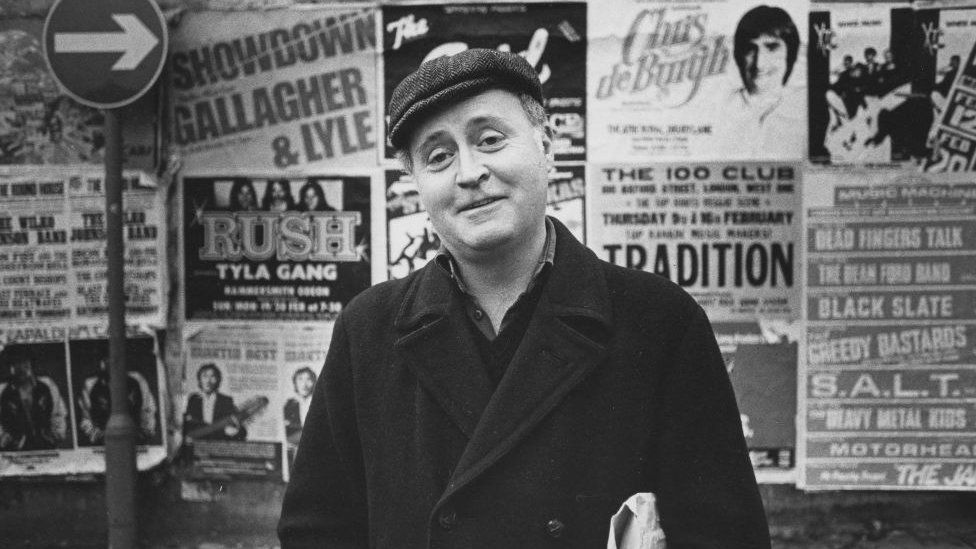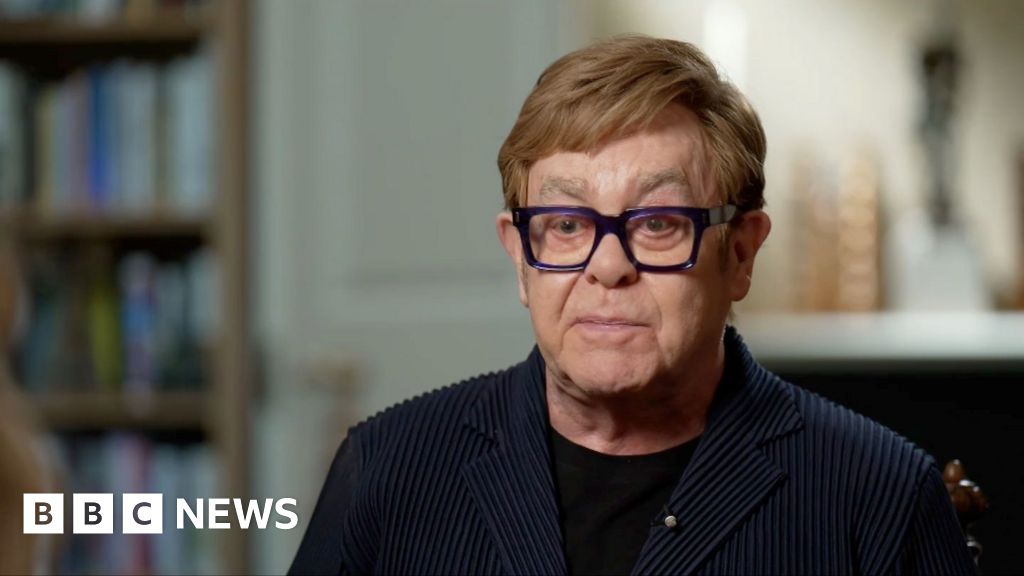ARTICLE AD BOX
 Image source, Getty Images
Image source, Getty Images
Bond's play Saved, set on a south London council estate, sparked controversy for its portrayals of violence
British playwright Edward Bond, who was known for his social commentary, died on Sunday at the age of 89.
The dramatist penned more than 50 plays in his career, including Lear and The Sea.
His play Saved, set on a south London council estate, sparked controversy for its portrayals of violence, which initially saw it banned when first staged in 1965.
Actor Samuel West described him as "a theatrical giant" in a post on X.
"His work was like nobody else's: passionate, serious, principled, anguished, strange, completely original," added West, who performed in Sam Mendes' 1991 production of The Sea at the National Theatre.
Bond was born in north London in 1934 and taught himself to read from his mother's shopping catalogues, before quitting school at 15.
He said his lifelong love affair with theatre stemmed in part from seeing his sister being sawn in half as a conjuror's assistant at a local music hall.
Novelty aside, experiences of wartime society informed his peacetime works of societal and community tensions in a changing world.
Bond's incendiary approach, which ultimately saw him fall out with collaborators and cast members, initially helped him make an instant impact as part of the Royal Court theatre's writers' group.
His first full play, goadingly titled The Pope's Wedding, opened in 1962 and explored the banality of rural life and growing isolation.
But it was Saved, three years later, that really set his reputation and public reaction alight. Its depictions of mindless, frustration-filled urban violence, including a baby being stoned to death in a pram, caused outrage.
Image source, Getty Images
Image caption,The infamous Saved pram scene, once banned, performed in 1972
Defences from Sir Laurence Olivier and other theatre icons failed to stop it being censored by Lord Chamberlain, who refused to licence the play.
Paradoxically, this banishment saw the work become a sensation outside the UK, establishing Bond as a "colossus of the world stage", wrote Claire Armitstead for The Guardian.
The Royal Court, perhaps spurred by the international interest, pushed forward unapologetically in putting on Bond's next play - the surrealist Early Morning.
This escalated shock value further - portraying Queen Victoria as killing Prince Albert and raping Florence Nightingale, who goes on to deliver conjoined twins. Heaven turns out to be a world of cannibalism.
Despite its satirical edge, the rewriting of Victorian monarchy once again incurred the wrath of censors. Showings did unofficially go ahead, however, billed as dress rehearsals.
Bond's two censored plays, banned so close in time, worked to force a rethink. Taken together, they are credited with playing a pivotal role in the abolition of theatre censorship by 1968.
"It is hard to imagine the explosion of visceral drama in the 1990s - especially the work of Sarah Kane - without his example," said Dominic Cavendish in his obituary for the the Telegraph.
Introspective biting underbelly
But although these early plays contained a "high quotient of violence", he was neither a "sensation-seeker nor a despairing nihilist", wrote theatre critic Michael Billington in the Guardian.
Social themes were evident in his Shakespearean works, including 1971's Lear - a modern rewriting of King Lear.
In Bingo, he turned his focus upon the Bard himself, casting Patrick Stewart in the lead role.
"Bond's Shakespeare was an unforgettable portrait of the artist as an old man, confronting his ineffectualness in mitigating the world's cruelty", added Billington.
When Billington asked if he saw this reflecting his own work, Bond replied: "All I can do is write the best plays I can and keep describing reality as I see it."
Image source, Getty Images
Image caption,In his latter years, Bond, increasingly isolated in the UK, taught in France
This honesty continued to be his greatest artistic weapon, but arguably also his sharpest career vice.
Arguments with institutions, including the Royal Shakespeare Company, saw him walk out over the standard of rehearsals for the 1985 imaging of The War Pigs.
"The men who run the National and the RSC - I call them the floating dead," he raged.
The Royal Court's artistic director, Max Stafford-Clark, would also call him "the most difficult person I have worked with" in a very public spat.
Whatever his personal faults, the fiery stage genius remains undeniable.
Alongside his stage work, Bond also worked on a number of screenplays, including Blow Up, Laughter In The Dark and Walkabout.

 1 year ago
103
1 year ago
103








 English (US) ·
English (US) ·